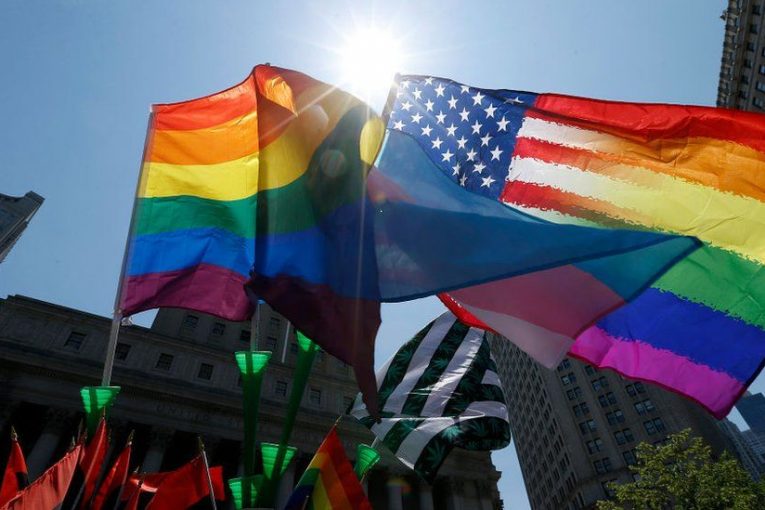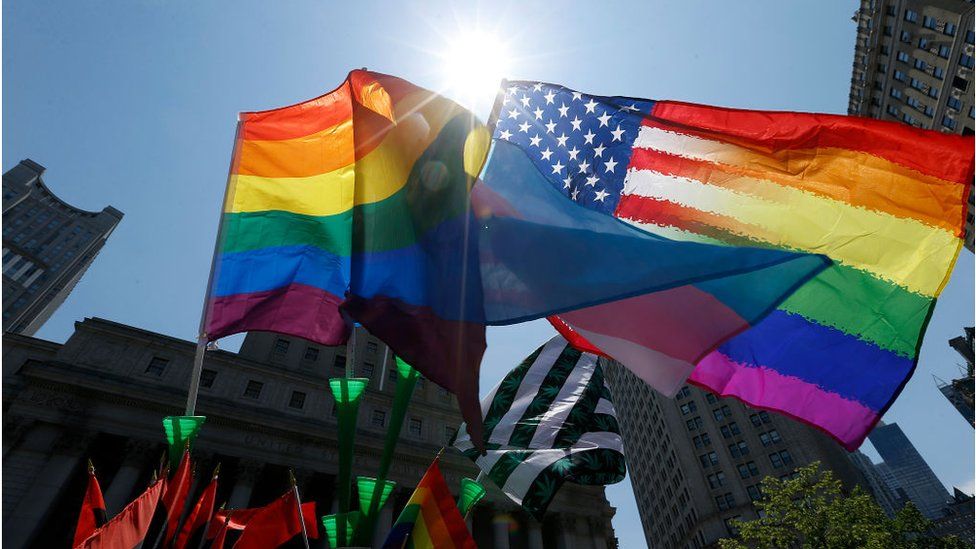

By Aishwarya Rajan
WASHINGTON- Two Houses – both different in their beliefs – brawled over the expansion of LGBTQ rights after the Democratic-led House passed a bill amending the Civil Rights Act of 1974.
Last Thursday, the House of Representatives passed the Equality Act, with a narrow Democrat-led victory of 224-206 votes.
Having already faced the difficulties of garnering support from the Republicans in the House, they face an even steeper challenge in trying to acquire the 60-vote threshold necessary to overcome the Senate-imposed filibuster.
This bill is an extension of the, already enacted, 1964 Civil Rights law. The 1964 Civil Rights law protects gay and transgender people from workplace discrimination on the basis of sex, sexual orientation, and gender identity.
With the new ruling in support for this bill, the meaning of this law would expand to include protections for all peoples, rather than solely those of the LGBTQ community that are a part of a “workplace” as originally stipulated by the law.
Among the Democrats who voted for the bill, Democratic Rep. Marie Newman, received much backlash from the opposing party.
Rep. Newman expressed the sentimental value that the passage of this law would bring to her and her family, as it would warrant that individuals, her transgender daughter alike, in the eyes of  the law, would never be treated differently again.
the law, would never be treated differently again.
To that, Republican Representative of Georgia Marjorie Taylor Green remarked that her daughter did not “belong in my daughters’ bathrooms, locker rooms, and sports teams.”
This unruly remark was not an isolated incident. Rep. Greene is known for referring to Rep. Newman’s transgender daughter as her “biological son.”
As the list of Republican Representatives opposing the bill grew, only three Republicans voted for the bill.
Several Republican representatives relayed that they would not support the bill until significant changes were made.
The threat of the legislature’s possible infringement on religious rights produced the most outcry from Republican representatives such as Chip Roy, of Texas, who claimed, “This is a government using its power to tell us to bow down to the will of a cultural elite in this town who want to tell us what we’re supposed to believe,” and “We’re not going to do that.”
Joining Rep. Roy was Republican Senator Mitt Romney of Utah. He expressed that he would not support the bill due to its negligence of “strong religious liberty protections.”
The piece of legislation outrightly diluted the power of the Religious Freedom Restoration Act of 1993 which prevented any government from wielding enough power to suppress freedom of religious practice.
Senator Susan Collins, co-sponsor of the similar Supreme Court legislation in 2019, will stand alongside Sen. Romney due to her disappointment in the lack of revisions made to the piece of legislation.
With two known GOP Senators already in opposition to the bill, the passage of this legislation appears to be a difficult task.
Further opposition to the bill went so far as to claim that the legislation could impede the advancements in women’s rights, an argument that has consistently been used as a conservative ploy.
As reported on Twitter and the Wall Street Journal op-ed, a drastic measure such as one proposed by this bill would “threaten the existence of women’s prisons, public-school girls’ locker rooms, and women’s and girls’ sports teams,” according to Republican Rep. of Ohio, Jim Jordan.
Despite the uproar by Republicans on Capitol Hill, Republican representatives Brian Fitzpatrick of Pennsylvania, as well as John Katko and Tom Reed of New York, took arms with Democrats in their fight against inequality.
“The time has come to extend the blessings of liberty and equality to all Americans, regardless of who they are or who they love,” opined Rep. David Cicilline upon introducing the bill.
This feat did not go unnoticed. President Biden expressed the same views because to “swiftly pass” the bill, is a “critical step toward ensuring that America lives up to our foundational values of equality.”
This foundation is a step that many leading businesses such as Coca-Cola, IBM, Microsoft, and the US Chamber of Commerce supported.
The introduction of this legislation into law would mark it as a landmark case for all those in the LGBTQ community.
As Human Rights Campaign President Alphonso David expressed, “Today’s vote is a major milestone for equality bringing us closer to ensuring that every person is treated equally under the law.”
It is in the Senate’s hands now.
To sign up for our new newsletter – Everyday Injustice – https://tinyurl.com/yyultcf9
Support our work – to become a sustaining at $5 – $10- $25 per month hit the link: